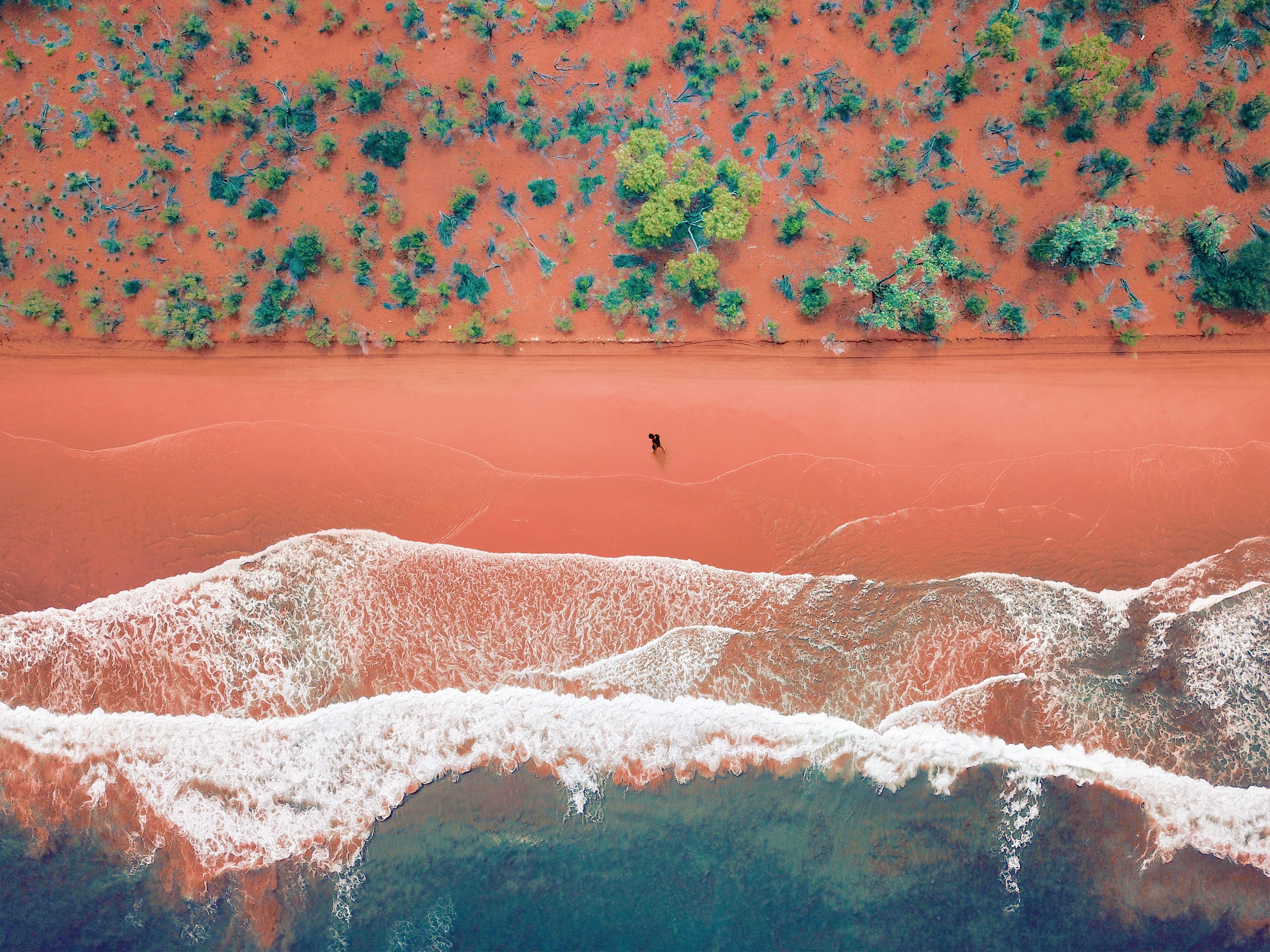Home/Curriculum resources/Living off our waters /Activity 1 – Inquiry based research
Learning Area:
Humanities and Social Sciences
Year level:
Level 4
Suggested timing:
2 lessons

Activity 1 – Inquiry based research
This activity is a part of the Living off our waters resource.
Rusty Red Sandy Beach. Photographer: Felix Cesare. Source: Getty Images. Used under licence
Different land areas need to be managed differently, in this resource students will investigate a range of geographically and climatically different areas.
Step by Step guide
Step 1: Research the history of fishing
The AIATSIS online collection ‘Living off our waters’ tells the history and values of fishing for Aboriginal and Torres Strait Islander People, including three community case studies. Students can individually or in small groups investigate these geographically and climatically very different areas, using these case studies as a base. Other related web-based resources should be researched and used for information, for example the Far West Coast Aboriginal Corporation or similar websites 0 , such as the Cultural Heritage Plans 0 .
Step 2: Optional Thinking Routine
Students could complete a Synthesis table to support their research from the Living off our waters AIATSIS collection. Students may complete the prior knowledge component before undertaking the research in Step 1.
Step 3: Map location
Locate each of these areas on a map of Australia and the Torres Strait Islands. What are the main environmental differences between these areas (e.g. climate)?
Apart from the harvesting of food, what are some of the cultural connections, for each of these groups, to the water environment and to the specific animals found within these environments?
What are the main differences between the food sources of these areas? Are there any common features?
What techniques were developed for harvesting the food sources in the different areas? This can include the use of watercraft for specific activities. What are the main differences, and can you explain reasons for these differences? Are there any common features?
Can you find examples of how traditional methods of using and managing the food resources are being used today?
The results of these enquiries can be presented as written work or as presentations to the class. All students should be encouraged to share their own experiences of ‘Living off our waters’.